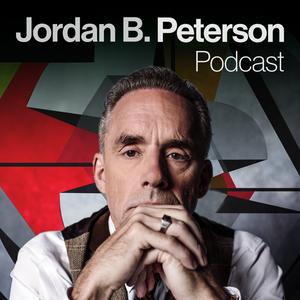Intro
In this episode of Freakonomics, the focus is on the consolidation of veterinary practices by private equity firms. The impact of this trend on the quality of pet care, employment conditions, and the veterinarian-patient relationship is explored. Through interviews with veterinarians and industry experts, the episode sheds light on the potential benefits and drawbacks of private equity ownership in the veterinary industry.
Main Takeaways
The Impact of Private Equity on Veterinary Practices
- Private equity firms have been buying up veterinary practices.
- It’s hard to determine the impact of private equity on pet care as there is not enough data yet.
- The competition for the best veterinarians and technicians is high.
Experiences of Veterinarians in Corporate-Owned Practices
- A veterinarian shares their experience of working at a practice bought by a private equity firm.
- The acquisition led to a huge staff turnover, with only a few original doctors remaining.
- Many staff members left due to issues with changing contract terms and unhappiness with the slow progress of finding solutions under corporate ownership.
- Corporate ownership did not necessarily lead to better administrative support, as decision-making processes became longer and more complex.
The Monopolization of the Veterinary Industry
- Private equity firms are investing in veterinary practices to monopolize the market and charge higher prices.
- Monopsony, where a firm can dictate market conditions for the things it purchases, can negatively impact wages and working conditions for veterinarians.
- The pet care industry is undergoing massive consolidation, leading to a decrease in flexibility and working hours for veterinarians.
The Role of Private Equity in Employment and Wages
- Private equity buyouts can lead to a disappearance of wage premiums for workers and a smaller slice of the growing pie.
- Wages grow slower for workers following mergers that substantially increase labor market concentration.
- The impact on non-financial terms for employees who stay or join the company, such as work environment and non-compete clauses, varies.
The Role of National Veterinary Associates (NVA)
- NVA, owned by German private equity firm JAB investors, is the second biggest consolidator of veterinary facilities in the US.
- NVA focuses on acquiring practices with a good reputation and invests in adding dental suites and providing training for veterinarians.
- NVA pays competitive salaries and benefits to retain the best veterinarians and technicians.
- NVA aims to leave the practice of medicine in the hands of the veterinarian and has a medical advisory board available to consult if needed.
Concerns and Skepticism
- Private equity ownership of veterinary care providers may vary in impact depending on the individual veterinarian and experiences.
- Private equity investors are buying up pet care facilities, which may impact the quality of care for pets.
- The speaker’s personal experience with a local veterinary practice highlights the importance of finding a vet that prioritizes the health and well-being of pets.
- The consolidation of veterinary pet care is continuing, so it’s worth paying attention to your vet.
Summary
Impact of Private Equity on Veterinary Practices
Private equity firms have been acquiring veterinary practices, leading to increased competition for top veterinarians and technicians. The impact on pet care is still uncertain due to limited data.
Experiences of Veterinarians in Corporate-Owned Practices
A veterinarian shares their firsthand experience of working in a practice bought by a private equity firm. The acquisition resulted in a significant staff turnover, with changing contract terms and slow problem-solving processes causing dissatisfaction among staff members.
The Monopolization of the Veterinary Industry
Private equity firms are investing in veterinary practices to gain market control and charge higher prices. This consolidation can negatively affect wages and working conditions for veterinarians, leading to a decrease in flexibility and working hours.
The Role of Private Equity in Employment and Wages
Private equity buyouts can result in a disappearance of wage premiums and a smaller share of the growing pie for workers. The impact on non-financial terms, such as work environment and non-compete clauses, varies.
The Role of National Veterinary Associates (NVA)
NVA, a major consolidator of veterinary facilities, focuses on acquiring reputable practices and investing in infrastructure and training. They aim to maintain the practice of medicine in the hands of veterinarians while providing support and resources.
Concerns and Skepticism
There are concerns about the impact of private equity ownership on the quality of pet care. Personal experiences, such as the speaker’s negative encounter with a corporate-owned veterinary practice, raise skepticism about the potential benefits of private equity ownership. It is important for pet owners to be vigilant and prioritize the well-being of their pets.
Conclusion
The consolidation of veterinary practices by private equity firms has raised questions about the impact on pet care, employment conditions, and the veterinarian-patient relationship. While some argue that private equity ownership can lead to improvements and investments in the industry, others express concerns about the potential negative effects on wages, working conditions, and the quality of care. It is crucial for pet owners to be informed and advocate for the well-being of their pets when choosing a veterinary provider.
